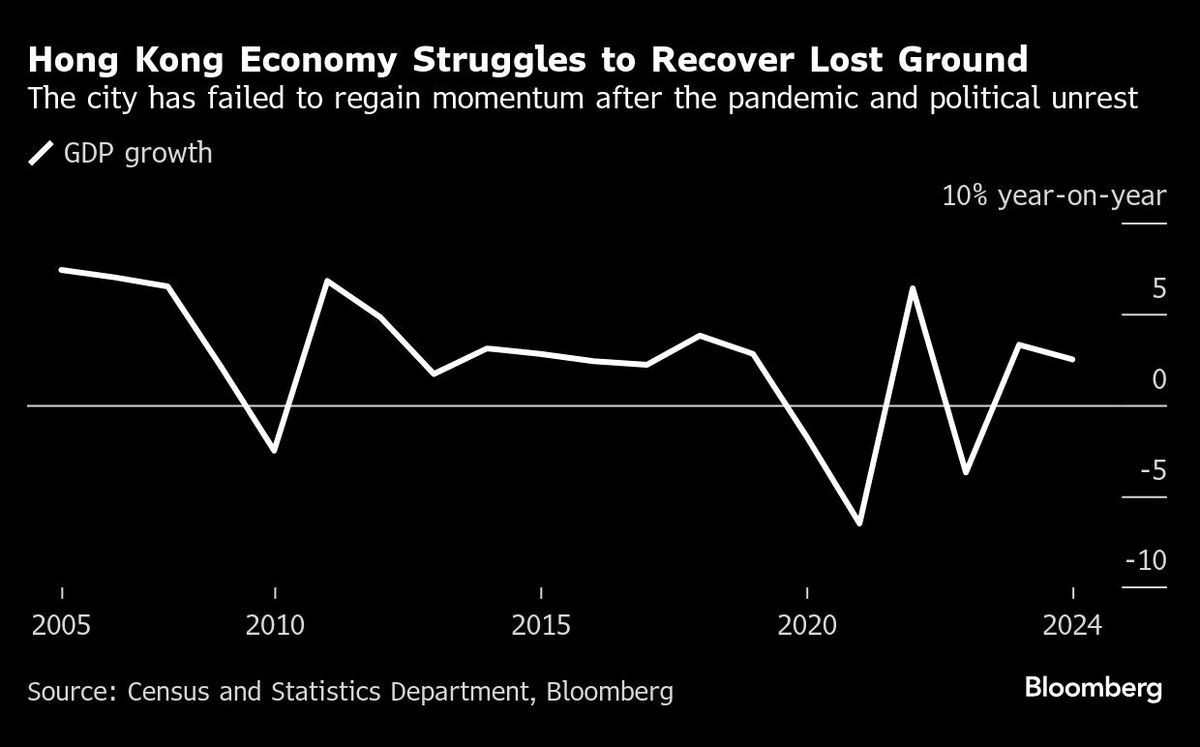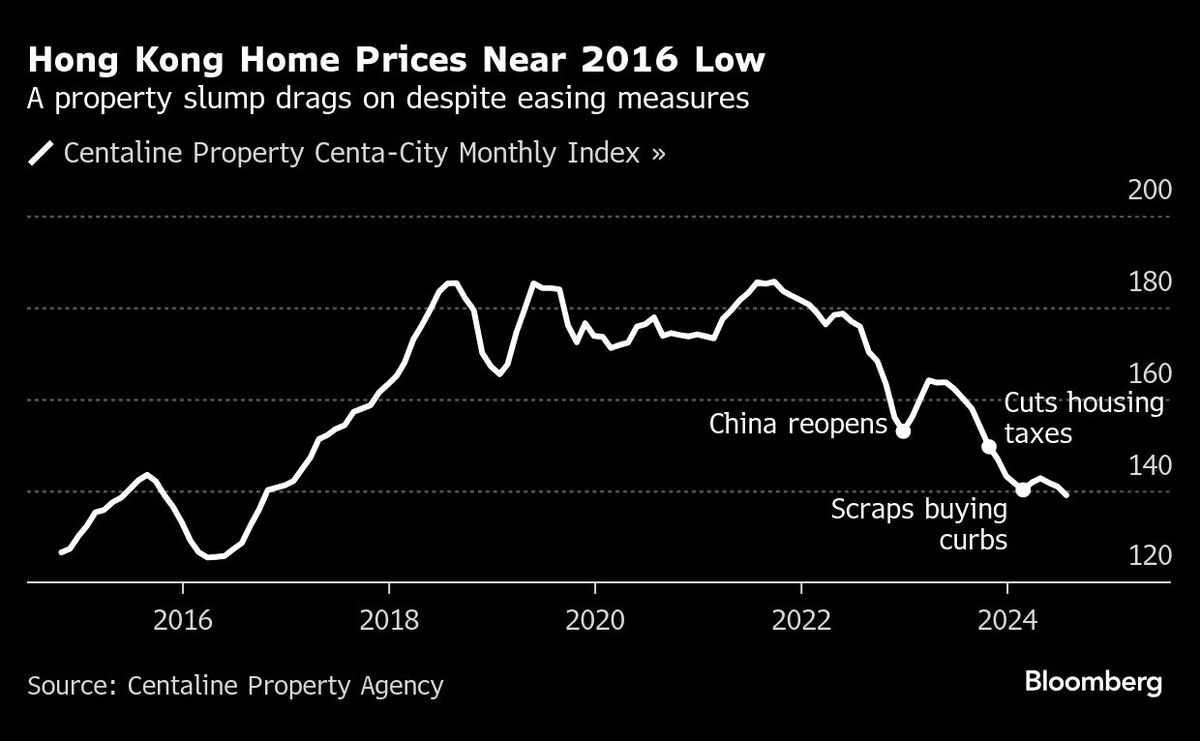
(Feb 26): Hong Kong Financial Secretary Paul Chan said the economy will grow modestly this year, as he looks to shrink the city’s deficit while countering headwinds from a slowing Chinese economy and rising trade tensions with the US.
The government forecasts gross domestic product to expand 2% to 3% in 2025, compared with a 2.5% pace last year, Chan said in his annual budget speech Wednesday. He vowed to rein in government spending that’s helped push the city’s budget deficit into the red for the third year in a row, while maintaining key public services.
“Strictly containing public expenditure is a must,” Chan said, citing challenges including geopolitical disruptions to trade and investment as well as high interest rates.
Policymakers are trying to balance the government’s books while finding ways to boost the economy in the face of elevated interest rates and the fallout from President Donald Trump’s trade war. Chan pledged to invest HK$1 billion (RM569 million) in an artificial intelligence (AI) research centre to drive innovation and set up a HK$10 billion fund to invest in emerging industries of strategic importance.
As the city searches for new growth drivers, Chan also said the government would accelerate the development of the Northern Metropolis, a project to further integrate the former British colony with neighbouring Shenzhen.
Chan said the government will seek to cut regular spending by 7% over the next three years, as falling land sales continue to hurt a key source of tax revenue. He’s also expected to expand tax sources by legalising basketball betting.
Hong Kong’s budget shortfall for the current fiscal year ending March is expected to approach HK$100 billion (US$12.8 billion), double initial estimates. Officials are searching for ways to maintain the city’s financial stability, while attracting new visitors and investors after the hub’s image took a hit from strict pandemic measures and a crackdown on dissent.
Trump’s new trade war is blurring the lines between Hong Kong and Beijing, threatening to erode the city’s main selling point as a global financial hub. When the Republican slapped a 10% levy on China earlier this month that action for the first time also applied to Hong Kong goods, after the president in 2020 stripped the city of its special privileges.
The city’s property market downturn has been one of the biggest drags on the economy, with prices nearing their lowest levels since 2016 in recent months. Consumer spending also remains constrained, with the total value of retail sales plummeting for ten straight months through December, the longest streak since the pandemic.
The government has already embarked on big-ticket infrastructure projects, including a sprawling land reclamation plan near Lantau Island and the Northern Metropolis, which could both boost the economy and drive up debt.
Chief Executive John Lee in October relaxed mortgage rules for some home buyers and investors and slashed a tax on some hard liquor. His administration has also sought to attract visitors with a pair of baby pandas and a new stadium set to open next month that will host major acts including Coldplay later this year.
Uploaded by Chng Shear Lane
- Xi's showdown with Li Ka-shing threatens China’s pro-business push
- Tan Kean Soon steps down as T7 Global executive deputy chairman, board says no operational impact
- Company auditor loses RM1.29m to investment scam
- Volvo Car brings back Samuelsson as CEO to steer turnaround
- Perak emerges as Malaysia's No 1 sweet corn producer


